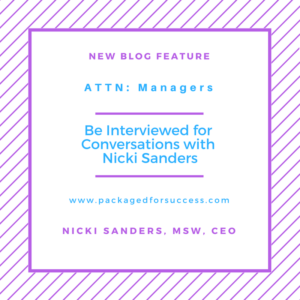Distracted? Work Harder!
By Chris Bailey
Trouble focusing could just mean that your work isn’t complex enough, and that there isn’t enough of it.
Mr. Bailey is a productivity consultant.
When it comes to focusing at work, there is no shortage of scapegoats to blame for our wandering minds. Social media, the ever-churning news cycle, chats with colleagues — these distractions can lead to a working state of mind that is far from focused. But there’s one possible cause of frequent distraction we don’t often consider: Our work isn’t complex enough, and there isn’t enough of it.
This idea isn’t a popular one, especially with those who feel they’re already working at capacity. That’s a growing number of us these days, when busyness — at work and at home — is seen as a kind of status symbol. But this busyness is often a guise for something else: We procrastinate by doing mindless, distracting tasks that make us feel productive, but in reality accomplish little.
Can you change this innate human behavior? Yes, but you may need to take on more work, and work on stuff that’s a little harder.
Complex tasks demand more of our working memory and attention, meaning we have less mental capacity remaining to wander to the nearest stimulating distraction. In his book “Flow: The Psychology of Optimal Experience,” the psychologist Mihaly Csikszentmihalyi argues that we’re most likely to enter into that state of total work immersion when the challenge of completing a task is roughly equal to our ability to complete it. We get bored when our skills greatly exceed the demands of our work — such as when we do mindless data entry for several hours. And we feel anxious when the demands of a task exceed our skills — as when we’re unprepared to give a presentation. Understanding your skill level and skill set, and pairing those abilities with a worthy task, will make you more likely to be fully engaged in your work.
Consciously taking on a greater number of complex projects is a powerful way to enter a mental state I call hyperfocus — an attentional mode in which one task consumes your complete attention. Your mind wanders less often in hyperfocus because you’re more engaged. That means you’re also more productive.
Besides questioning the complexity of individual tasks, it’s worth reflecting on whether you have enough work to do in general. If not, you’re inviting distraction.
Think back to your last tight deadline. Did that timeline offer the luxury of tending to unproductive distractions like scanning the news and refreshing Twitter? Probably not. Yet, on nondeadline days, it can feel impossible to focus on the task at hand.
In productivity circles, this phenomenon is known as Parkinson’s law. The idea is that our workload tends to expand to fit the time available for its completion. Small tasks that should take two hours to complete will take an entire workday if we have that time available. Distractions are to blame for this time trap.
The research surrounding attention suggests that our minds are biologically wired to focus on anything that’s novel, pleasurable or threatening — and distractions can be an enticing cocktail of all three. This is one of the reasons I recommend taming distractions in advance, and there are many tactics and tools to help you do this: downloading a distraction-blocking application for your computer, putting your phone in Do Not Disturb mode or just leaving it in another room can help.
Article originally appeared on the New York Times.
